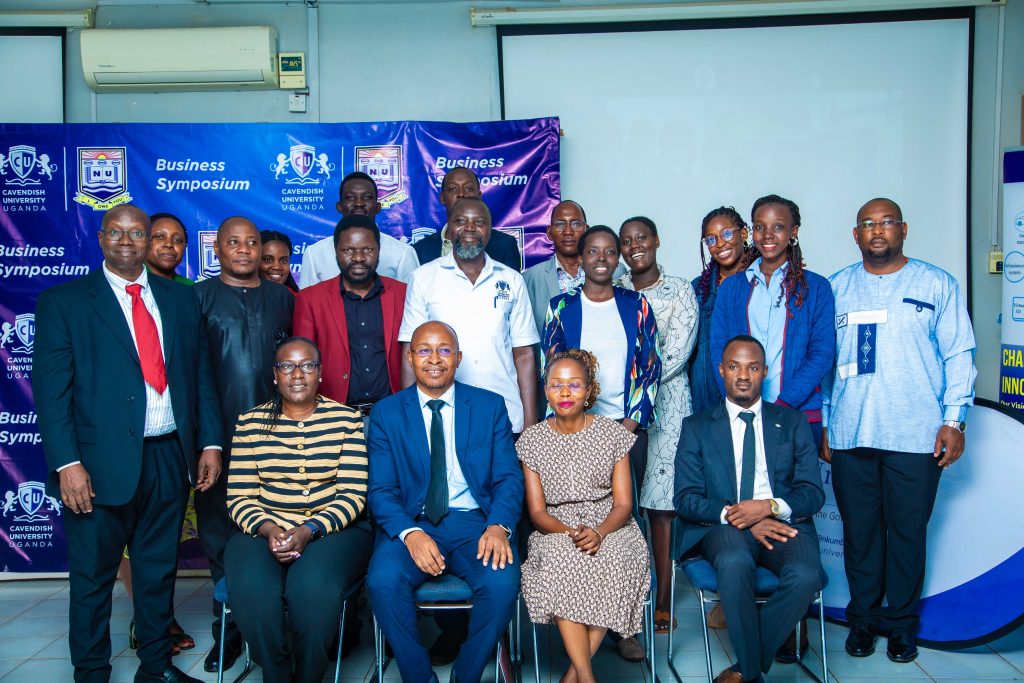
Cavendish University Uganda in partnership with Nkumba University has engaged in a business symposium at its headquarters in Kampala, collaborating with the School of Banking Vietnam, thereby imploring the government to reduce taxes on Telecom companies so that the Internet can be more affordable, easily accessed by students and institutions of higher learning.
Friday, the symposium, marks the second one of its kind following the recently concluded in 2022, the key focus areas are on digital divide, the role of higher education and industrial collaboration.
The idea came after a discussion meeting between the previous Vice Chancellor of Cavendish University and the current Vice Chancellor of Nkumba University in Uganda, and from that a business symposium was born to enhance collaboration and hold discussions on constructive issues and issues that affect them as universities.
The symposium attracted other stakeholders both from government and private institutions like the MTN Uganda , NITA U, United Nations Capital Development Fund, the UN Global Pulse Uganda, the Uganda Investment Authority, School of Banking University of Economics Ho Chi Minh City Vietnam and others. The theme for this year’s symposium runs,” Education Deficiency and the Digital Divide, Bridging the Gap Between Education and Industry in Uganda.”
Mr. David Mutabanura, the Executive Director of Cavendish University emphasized the goal of the symposium during his opening remarks as to address the digital divide and reflect on the role of higher education institutions. The digital divide in Africa is highlighted, influenced by factors such as the size of the economy, nature of economies, and governance.

The lack of collaboration among ecosystem partners, including academic institutions, industry partners, governments, and NGOs, is identified as a significant issue, he said.
Highlighting the role of Higher Education Institutions, Mutabanura, discussed their evolving role, focusing on creating an ecosystem where students can interact with various stakeholders. The importance of facilitating interactions between students, educators, industry participants, policy makers, and advocates is crucial.
Higher education institutions are seen as central hubs for teaching, learning, research, and the development of people and prosperity. The need to think differently about learning, with the learner now often being more knowledgeable due to pre-study of content.
He however, stressed the importance of higher education institutions acquiring, mastering, and using emerging technologies to serve students, Investments in technology by universities are discussed, with a focus on the potential benefits for learners despite the initial costs. The challenges and opportunities associated with technological investments in higher education are outlined, noted Mutabanura.
“The role of educational institutions in facilitating the development of students through technological advancements is reiterated.”

Dr. Byamukama John, Dean of Business Administration Nkumba University described that This time around, they are specifically looking at the digital divide and what is, the role of higher education and industrial collaboration.
“ We felt very strongly that we seem to be running, probably very slow in this digital era. And there is that gap that exists between higher education, how we are supposed to lead the digital infrastructure, this digital era, and how we then relate to the industry.” He said.
A couple of factors also literally affect the students here and can not be compared to developed countries, the challenges of infrastructure from the symposium are also mentioned, “you could already see how difficult it is to connect with somebody in Vietnam. That already tells you the challenges that we have, the conversations around Internet connectivity, conversations around the price” included Byamukama.
